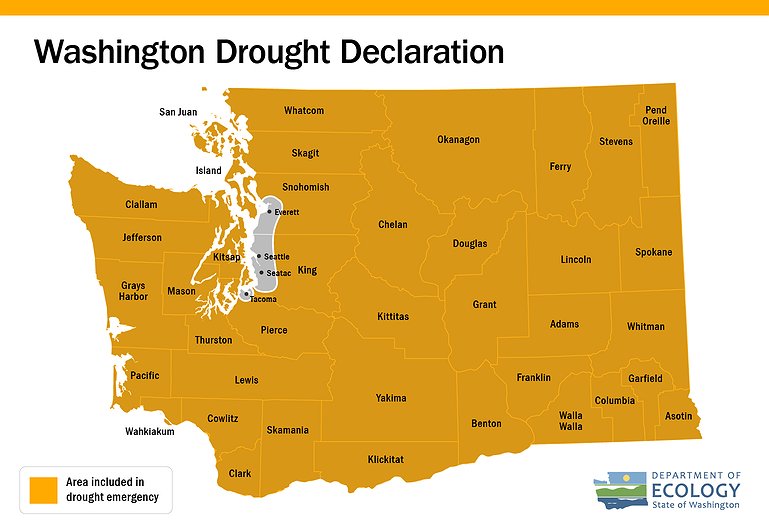Most of WA remains in drought conditions
OLYMPIA — The Washington Department of Ecology has announced that most of the state remains in a drought despite a wetter-than-average June. A drought was declared for most of the state in April.
“The April drought declaration enabled folks to start thinking about options to mitigate drought impacts for this summer and make best use of relief options,” said Caroline Mellor, Ecology’s statewide drought lead.
According to a report from Ecology, impacts include hardships for hatcheries due to low streamflows and warmer temperatures and multiple areas in the Columbia and Yakima basins are dryer than usual. Farmers are expected to receive less irrigation water with Yakima Basin irrigators getting about 51% of their usual allotment. The Columbia Basin is expected to be the fourth driest its been since 1949. Much of the problem is related to reduced runoff from mountain snowpacks from ranges that feed water into Eastern Washington.
“We continue to see low runoff and low seasonal volume forecasts,” said the Northwest River Forecast Center Senior Hydrologist Amy Burke “Runoff and water supply forecasts remain lower than normal, with water supply forecasts near record low in many places.”
Data published by the NWRFC indicates that precipitation for the winter was only at 74% of normal as of Jan. 3.
According to the U.S. Department of Agriculture, the Lower Columbia Basin saw 106% of its median rainfall in May, the most recent month for which data was available. The Central Columbia Basin saw 60% and the Upper Columbia Basin saw about 75% median precipitation during that same month. While the Lower Columbia Basin received more rain, that didn’t offset the lack of snowpack or less moisture north in the watershed overall.
Irrigation water availability projections are generally down statewide for agricultural purposes.



